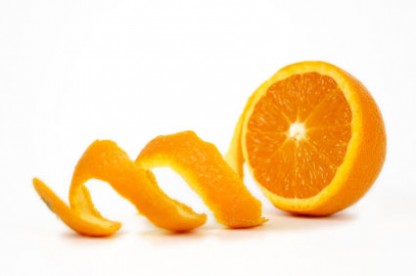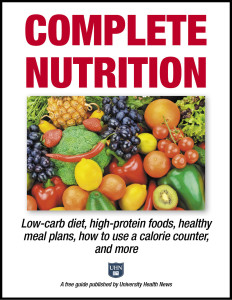Vitamin C Benefits Protect Us Against Heart Disease—and Lower the Risk of Early Death
Although people may disagree on whether you should eat a Paleo, vegetarian, DASH, or Mediterranean diet, or any of an number of other diets, everyone can agree that we should all be eating more fruits and vegetables. Here’s another reason: Research that tells us that consumption of fruits and vegetables protects against heart disease and early death. This association is likely in large part due to the many vitamin C benefits in fruits and vegetables.
High Vitamin C, Lower Risk for Heart Disease and All-Cause Mortality
In 2015, researchers from Denmark found some remarkable results linking fruit and vegetable consumption, vitamin C levels, and the risk for death and disease. They analyzed data from about 100,000 Danish people, looking at dietary patterns. They found that people who ate the most fruits and vegetables had a 15 percent lower risk for cardiovascular disease compared to those who almost never ate fruits and vegetables. They also had a 20 percent lower risk for early death from all causes.[1]
In 3,512 of those participants, the researchers also looked at plasma vitamin C levels. The higher the levels of vitamin C in the blood, the lower the risk for heart disease and early mortality.
The researchers concluded that high vitamin C intake at least partially explains the link between fruit and vegetable consumption and lowered risk for disease. Obviously, vitamin C is not the only reason that fruits and vegetables are good for your health; these foods are also good sources of many other vitamins, nutrients, and antioxidants.[1]
Eat Right, Starting Now!
Download this expert FREE guide, Complete Nutrition: Low-carb diet, high-protein foods, healthy meal plans, how to use a calorie counter, and more.
Create healthy meal plans and discover the Superfoods that can transform your plate into a passport to better health.

Why Is Vitamin C So Good for You?
Vitamin C benefits your health in a variety of ways. It is probably most well known for its immune-boosting effects, helping to protect against things like the common cold. It is also considered a very strong antioxidant, which helps it to protect against the oxidation of LDL-cholesterol and prevent atherosclerosis.[1]
These antioxidant activities help protect against heart disease and many other conditions like neurodegenerative diseases. Vitamin C is also important for the synthesis of neurotransmitters, collagen, and more.
Best Sources of Vitamin C
Vitamin C is not made by the body; we must eat it to get enough to stay healthy. And while you can take vitamin C in supplement form, the best way to increase your intake is by eating more fruits and vegetables that are rich in this healthy vitamin. Some of the best sources of vitamin C include:
- Citrus fruits
- Tomatoes
- Red and green peppers
- Kiwi
- Broccoli
- Strawberries
- Brussels’ sprouts
- Cantaloupe
- Papaya
- Kale
It is best not to cook these vegetables too much, as vitamin C can be lost to heat; try lightly steaming for best results. Make sure to aim for at least five servings of fruits and vegetables a day, and you’ll be well on your way to getting plenty of heart-healthy vitamin C.
Read more about the many vitamin C benefits in these posts:
- “Boost Your Energy with Vitamin C IV Therapy for Epstein-Barr Virus“
- “Don’t Ignore This Bone Building Nutrient for Natural Osteoporosis Treatment
- “This Natural Remedy for High Blood Pressure is Safe and Effective According to Johns Hopkins Researchers
Share Your Experience
Do you get enough vitamin C in your diet? Which vitamin C-rich foods are your favorites? Share your tips for boosting your fruit and vegetable intake—and in particular your vitamin C intake—in the Comments section below.
[1] Am J Clin Nutr. 2015 Jun;101(6):1135-43.
Originally published in 2015, this post is regularly updated.
The post Vitamin C Benefits Protect Us Against Heart Disease—and Lower the Risk of Early Death appeared first on University Health News.
Powered by WPeMatico


